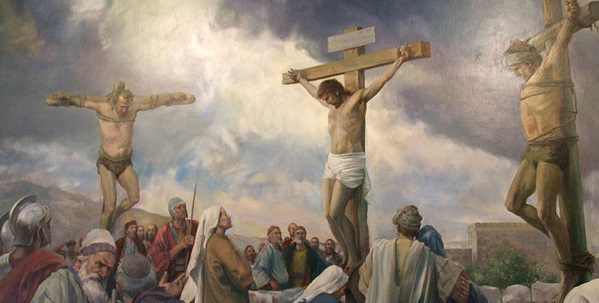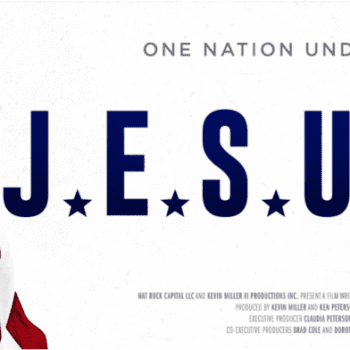
Pastors have a frequent question when they begin to discover mimetic theory. “That’s great. But how does it preach?”
Reverends Tom and Laura Truby show that mimetic theory is a powerful tool that enables pastors to preach the Gospel in a way that is meaningful and refreshing to the modern world. Each Wednesday, Teaching Nonviolent Atonement will highlight Tom and Laura’s sermons as an example of preaching the Gospel through mimetic theory.
In this sermon, Tom discusses the rivalry between James and John over who will sit at the right and left hand of Jesus when he enters his glory. Tom uses mimetic theory to illuminate rivalry and to show the only way out of its trap – through imitating Jesus as the loving and nonviolent servant of all. Who will sit at Jesus right and left when he enters his glory? As Tom states, the cross reveals that it’s those who have been excluded and scapegoated by human culture.
Year B, Pentecost 21, Sundays between October 16 and 22 inclusive
October 18th, 2015
By Thomas L. Truby
Mark 10:35-45
Who Is at the Right and Left Hand of Jesus?
James and John, Zebedee’s sons, come to Jesus and say, “Teacher, we want you to do for us whatever we ask.” Every kid knows about this desire.
Mom, I want you to do whatever I ask, okay? I have even wanted that with my wife but the brashness of it scares me, plus the near zero chance of success. But not the Zebedee boys! They have hutzpah. Sons of Thunder they are and very ambitious. Confident that they can change the world and the world needs changing in the direction they point.
Can you imagine going up to a political candidate and saying “We want you to do for us whatever we ask.” I guess I can now that I think about it. We call such persons lobbyist and big contributors.
Jesus wasn’t running for president but James and John thought he was. They saw him as leading a coup and were pretty sure he would be successful since they also thought God was violent and on their side. Those miracles Jesus did seemed like confirmation to them.
If they had come to me with their request I would have been suspicious and on guard, my rivalry with them activated, but Jesus remains open. I admire his gentle solidness. “’What do you want for me to do for you?’ he asked.”
They say, “Allow one of us to sit on your right and the other on your left when you enter your glory.” They want to be Jesus’ top two guys when he becomes the big Kahuna. They keep it all quite vague. Politics is unpredictable business and loose terms give you room to maneuver.
They said this to Jesus within the hearing of the other ten disciples. What were they thinking? How did they think the other disciples would feel about their request? For budding politicians they are strangely blind to human rivalry. I have a theory about why. I think they were in rivalry with each other and lost sight of the other ten.
“Jesus replied, ‘You don’t know what you are asking!’” That’s the understatement of the year! It reminds me of Jesus saying on the cross “They don’t know what they are doing.” Jesus goes on, “Can you drink the cup I drink or receive the baptism I receive?” We know the cup he must drink is the crucifixion and the baptism is being drowned in the waters of violence until dead—capital punishment on trumped-up charges.
“‘We can,’ they answered” again confirming they don’t know what they are asking. We know they will soon scatter in terror convinced that Jesus has misled them and the hostile crowd is right about him.
“Jesus said, ‘You will drink the cup I drink and receive the baptism I receive.’” I find that a bit chilling. Does he mean they will suffer for what they believe?
He goes on to say “But to sit at my right or left hand isn’t mine to give.” This confuses me. If it isn’t his to give then who gives it and on what basis? Jesus clarifies, “It belongs to those for whom it has been prepared.” We learn later it’s reserved for two thieves, if we take this literally.
Jesus is preparing a place as they speak, getting ready and preparing his disciples. The line of inquiry stops at this point and we are left hanging.
The scene shifts. “Now when the other ten disciples heard about this, they became angry with James and John.” Did they fear being lorded-over by these two or did they each want to be the one doing the “lording”? We knew they would object.
“Jesus called them over and said, ‘You know that the ones who are considered the rulers by the Gentiles show off their authority over them and their high-ranking officials order them around.’” He’s saying the world’s way is to pull rank, make people show subservience, and parade power. James and John had just requested they be given rank. Every single one of them wanted to be preeminent or at least not lorded over. It’s the human problem. Mom, I want you to do whatever I ask, okay?
Jesus compares them to the Gentiles that the disciples think are lesser than they, they being Jews. We can see they are just the same. How do we solve the problem of rivalry in all human groups?
Jesus has a solution. He tells them if they want to distinguish themselves in Jesus’ kingdom they will have to do it another way. It is through servanthood. “Whoever wants to be great among you will be your servant.” To be a leader in Jesus’ kingdom means relinquishing the quest for preeminence. Not an easy thing and a spiritual accomplishment. In my kingdom, he says, those who lead do so by serving—not parading your exalted position.
And then to deepen his imagery and show its supreme importance he adds “Whoever wants to be first among you will be the slave of all.” In living the way of servanthood, of slavery in service of liberation for all those our culture wants to ignore or crush, we follow our leader by doing what he did. Or as Jesus put it, “The Human One didn’t come to be served but rather to serve and to give his life to liberate many people.”
Now we are ready to discover who sits at the right and left hand of Jesus and will share leadership with him when his glory is revealed. And let’s assume it’s not just the two thieves though they were rejected by their own culture and therefore eligible to be first in Jesus’ kingdom.
Two choices offer themselves and one is more important than the other. The ones at Jesus right hand are those in need, those who are broken and forgotten, those we overlook and push out, imprison and stigmatize; the least of these. Yes, maybe even the thieves on either side of Jesus for they too are beneficiaries of what Jesus is showing us all about the character of God.
What about the place to the left of Jesus? Maybe it is prepared for those who serve the least of these. This number includes the people of Clarkes United Methodist Church. Let’s remind ourselves of some of the things we are doing. Doing these things helps us detach from our own temptation to rivalry among ourselves and goes a long way toward keeping us unified as a church.
(At this point various groups and individuals told the rest of the church what they were doing to feed the hungry, care for the sick and serve those in need. We do this as we gather for our annual rummage-sale-fundraising that requires the participation of the whole church and usually raises at least $6000. Not a small sum for a small church.)











